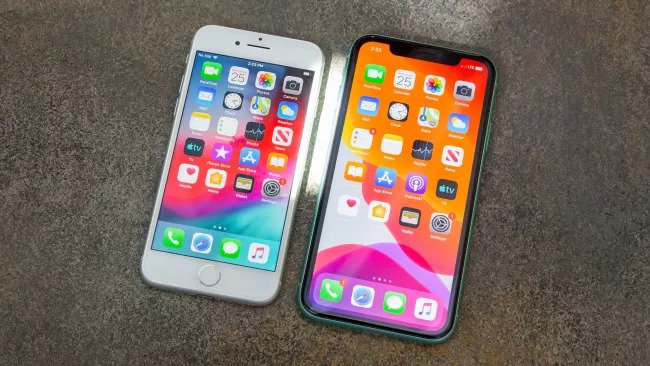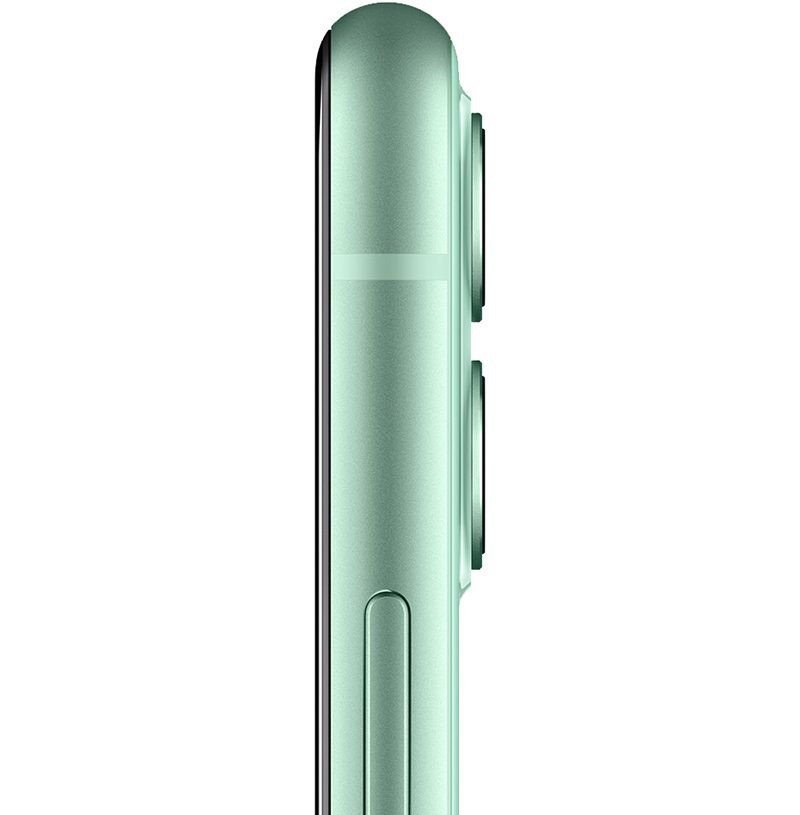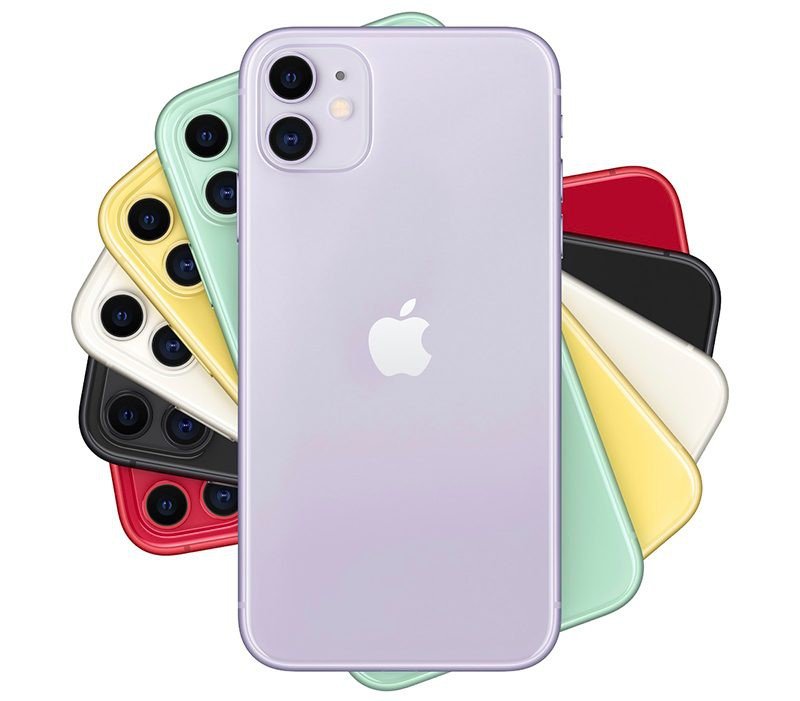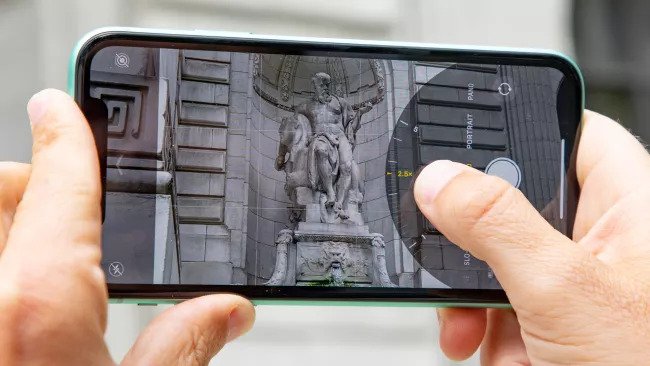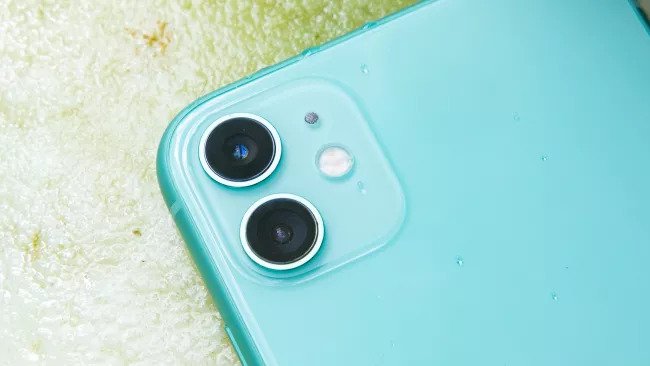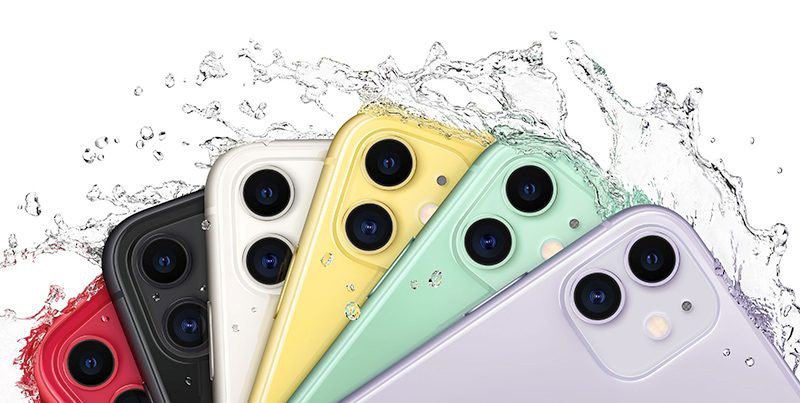iPhone 11 vs. iPhone 8: Should You Upgrade?
Here's a breakdown comparing the iPhone 8 vs. 8 Plus vs. iPhone 11 vs. iPhone 11 Pro. We compare and contrast. Should you upgrade your iPhone 8 to iPhone 11
Author:Daniel BarrettMay 29, 2022132386 Shares2595802 Views
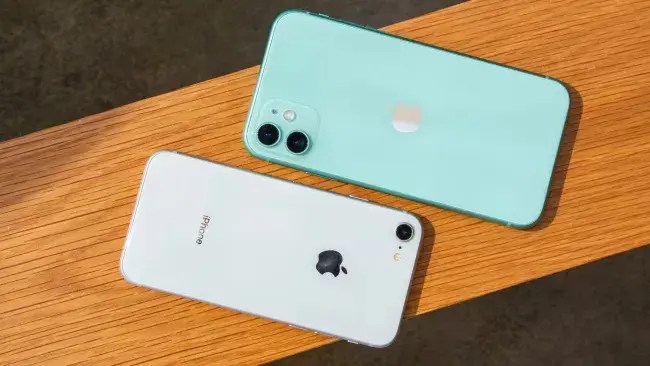
Many iPhone 8 users will likely be looking to upgrade to the iPhone 11 or 11 Pro. But should they? Is the jump from the iPhone 8 or iPhone 8 Plus to the iPhone 11/Pro worth it?
Upgrade or Not?
The iPhone 11 and iPhone 11 Pro is obviously better than the iPhone 8 and iPhone 8 Plus in almost every aspect. The phone marks the beginning of Apple’s new ‘pro’ iPhone lineup and to live up to its name, the iPhone 11 Pro comes with a number of new features. But then again, despite its age, the iPhone 8 and iPhone 8 Plus are great smartphones. So, upgrade or not?
Display and Design
You’re not going to mistake an iPhone 11 and an iPhone 8 if you stack up the models next to each other. At 5.94 x 2.98 x 0.33 inches, the iPhone 11 is noticeably taller and wider than the iPhone 8. The 8 Plus is both taller and wider than the iPhone 11, though, even with the larger screen on Apple’s newer phone.
Apple has always been known to use quality displays on its devices. The LCD panel on the iPhone 8 and iPhone 8 Plus is not bad by any means, but the iPhone 11 and 11 Pro’s Super Retina XDR display is at a different level altogether.
The OLED panel on the iPhone 11 Pro has a peak brightness level of 1200 nits, supports HDR10 content, has great viewing angles, and an outstanding contrast ratio. The LCD display on the iPhone 8 series simply cannot hold a candle in front of the iPhone 11 Pro’s display.
Meanwhile, the iPhone 11 features a precision-machined 7000 series aluminum frame that wraps around an all-glass enclosure. With its 6.1-inch display, the iPhone 11 is between the 5.8-inch iPhone 11 Pro and 6.5-inch iPhone 11 Pro Maxin size.
iPhone 11 vs. iPhone 8
Apple fit a larger screen onto the iPhone 11 because of the notch in the display that houses the sensors and lenses that make up the TrueDepth camera. That frees up space for more screen real estate that’s otherwise eaten up by the chunky bezels on the top and bottom of the iPhone 8 and 8 Pro.
If you consume a lot of content on your iPhone or if the display is just too important for you, the new Super Retina XDR display on the iPhone 11 Pro series is one tempting reason to upgrade to it.
Color Option
Both the newer and older iPhones feature a glass back, but the iPhone 11 outdoes the iPhone 8 in terms of color options. You can get Apple’s new phone in one of six colors — black, green, yellow, purple, white and Product Red. The iPhone 8 and 8 Plus are available in more staid gold, silver and space gray options.
Touch ID
The iPhone 8 does have Touch ID while the iPhone 11/Pro relies on Face ID. Apple has improved Face ID substantially on the iPhone 11 Pro compared to when it first debuted on the iPhone Xin 2017. Face ID is definitely more convenient to use than Touch ID but it does have a slightly higher failure rate as well.
Performance
Apple’s A11 Bionic powers the iPhone 8 and iPhone 8 Plus while the iPhone 11 and 11 Pro features an A13 Bionic chip. The latter is obviously more powerful and power-efficient. It is, in fact, the fastest CPU and GPU inside a smartphone right now. However, despite its age, the iPhone 8 and iPhone 8 Plus do not show any performance issues or struggle with heavy apps and games. They are still able to play heavy games like PUBG and Asphalt 9 smoothly albeit at 30fps and not at 60fps.
Unless you are doing something extremely heavy that brings the iPhone 8’s chip to its knees, there really is no reason to upgrade to the iPhone 11 Pro from a performance viewpoint. With iOS 12and iOS 13, Apple has also ensure that its older devices do not slow down as they age and that shows with the iPhone 8 holding up very well couple years after its release.
The iPhone 11 Pro also ships with more RAM than the iPhone 8 which means it will have better multitasking performance than the latter. This might be a big deal for power users who frequently switch between apps on their iPhone.
iPhone 11 vs. iPhone 8
To give you a sense of the iPhone 11’s superior performance. On Geekbench 5, which measures overall performance, the iPhone 11 turned in a single-core score of 1,333 and a multicore mark of 3,251. (Only the iPhone 11 Pro models had better results, likely because of more RAM.) In comparison, the iPhone 8 Plus’s numbers were 925 and 2,460, respectively.
Camera
The other noticeable difference between older and newer iPhones is the number of cameras on the back of each one. The iPhone 11 sports two lenses, the same amount you’ll find on the iPhone 8 Plus. iPhone 8 makes do with a single 12-MP wide camera with an f/1.8 aperture, while the iPhone 11 Pro feature a triple-lens camera system with telephoto, wide-angle, and super wide-angle lenses.
The iPhone 8 Plus and iPhone 11 may have the same number of cameras, but the lenses serve different purposes. The 8 Plus augments its 12-MP main shooter with a 12-MP telephoto lens that supports a 2x optical zoom. The iPhone 11 goes the other direction, with a 12-MP ultra wide lens joining the standard wide camera. It supports 2x optical zoom out. Up front, there’s a more powerful sensor for the iPhone 11’s TrueDepth camera — 12-MP to the 7-MP shooter on the iPhone 8 and 8 Plus.
Additionally, the iPhone 11 Pro also has cinematic video stabilization and wider dynamic range while recording videos.
The front camera on the iPhone 11 Pro is also a notable step up from the iPhone 8’s 7MP FaceTime HD camera. Not only does it have a higher 12MP resolution, but it also has a slightly wider field of view. The latter will allow you to fit a wee bit more people in your selfies. The iPhone 11 Pro’s front camera can not only record videos in 4K but also ‘slofies’ a.k.a slow-mo videos.
Durability
The iPhone 11’s more durable, too, with an IP68 water resistance rating that allows it to survive a 30-minute dunk in up to 2 meters of water. With an IP67 rating, the iPhone 8 models can only last that long in up to 1 meter of water. Apple says the iPhone 11 is more durable than before, and while third-party durability tests back up that claim, we’d still recommend getting an iPhone 11 case.
Connectivity
Don’t think turning to an old iPhone will bring back the late, lamented headphone jack. The iPhone 8 and 8 Plus don’t have that much-missed 3.5mm port, just like the iPhone 11 and 11 Pro. But in terms of connectivity, the iPhone 11 Pro brings a lot to the table. It features a 1.6Gbps Gigabit LTE modem, faster Wi-Fi 6 support, Bluetooth 5.0, and even has Apple’s new Ultra Wideband chip. The iPhone 8, in comparison, does not even have a Gigabit modem.
Battery Life
In recent years, Apple has spent a lot of time focusing on the batteries inside its phones. Those efforts bear fruit in terms of longevity: The iPhone 11 and 11 Pro lasted over 11 hours on battery test, which involves continuous surfing over T-Mobile’s LTE network until the phone runs out of power.
If you use an iPhone 8, you are really going to enjoy the improved battery life of the iPhone 11 Pro. The iPhone 8 Plus offers respectable battery life but it simply cannot compete with the excellent battery life of the iPhone 11/Pro.
Both phones have fast-charging support, so you can get up to a 50% charge after half-an-hour with an 18-watt charger. The trouble is, you’ve got to buy that charger separately, as Apple doesn’t include it with either the iPhone 11 or iPhone 8. (You do get a charger with the iPhone 11 Pro models.)
Price
This is where you will have to think twice before considering upgrading to the iPhone 11 Pro.
The iPhone 11 starts at $699 for a 64GB phone, the iPhone 11 Pro starts at $999 while the iPhone 11 Pro Max starts at $1,099.
The iPhone 8 starts at $449 for a 64GB model while the iPhone 8 Plus will set you back $549. Trade-ins can reduce the price for any of Apple’s phones even further, though you’ll need a newer model to reap the biggest discount.
Assuming you can get about $400-500 for your iPhone 8 or iPhone 8 Plus, you will still have to spend an additional $500 towards the upgrade. Ask yourself the question if you are willing to spend that much money to upgrade to the iPhone 11 Pro or not. If the answer is a yes, go ahead with the upgrade.
Bottom line
Obviously, there’s a big gap between the iPhone 11 and iPhone 8, and if you’re holding onto an older phone, it’s a no-brainer as to which model you should get. The iPhone 11 may be more expensive than the iPhone 8, but it’s not astronomically so, and in exchange, you get better cameras, a faster processor, better durability, and (in the case of iPhone 8 model), better battery life.
Related Article: iPhone 11 vs Galaxy S10e: Benchmark and comparison

Daniel Barrett
Author
Latest Articles
Popular Articles
